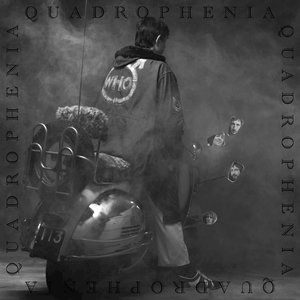Published on Oct 7, 2004
The Who never had peaks and valleys in their career. To this
day, Pete Townshend can windmill out excellent riffs and Roger
Daltrey believes what he is singing. No, the Who’s peaks and
valleys occured within their albums, leading to works of art that
are alternately frustrating and jaw-dropping.
Nowhere is this more evident than the Who’s second double album
and second rock opera,
Quadrophenia. After
Tommy broke new ground and
Lifehouse was shortened into the excellent
Who’s Next album, the group decided to celebrate both the
English rock scene and their own distinct ersonalities in the
framework of a young mod named Jimmy.
The plot is simple: a teenager named Jimmy comes of age in the
midst of a struggle between mods and rockers in England. The four
sides of Jimmy’s personality reflect the characteristics of the
four Who band members, which is not evident to the casual fan but
helps the lyrics make more sense to someone who delves into Who
history. In fact, this is a celebration of history, a look back to
mod culture and a look forward to where rock was going, both
artistically and culturally.
On the plus side, there is not a filler song on here. Unlike
Tommy, the songs here advance the plot or kill time with
excellent instrumental interplay that prove the Who was the
third-best British invasion band (or second, if you are not a
Stones fan). On the minus side, there are so many times Entwistle
and Moon can go crazy on their instruments before it gets old, and
by the final three songs, one just wants the band to get to the
point and calm down.
The first few songs are wonderful, some of the best in the Who
canon. “Real Me” is a workout for bass-player wannabes everywhere,
a driving song that showcased everything the Who did right. It is
followed by the instrumental title track, a sort of overture that
sets the tone for the rest of the album. Other standouts include
the mini-story “Punk Meets the Godfather” and the alternating
heaviness and acoustic strumming in “I’ve Had Enough,” with
understated keyboard work and cymbal flourishes that help elevate
the song. But “I’m One” and “Is It In My Head?” are pretty bland,
while “Dirty Jobs” and “Cut My Hair” illustrate the overkill Moon
took to nearly every song on this album.
This becomes clear in “Sea and Sand” and “Drowned” on side 2.
Instead of just keeping a good beat, Moon punctuates every silence
with a loud drum fill, never stopping once to let the other three
speak. By the middle of “Bell Boy,” I wanted to tie his hands
behind his back and let the other three work their magic. His
insistent pounding ruins otherwise solid songs, of which there are
many on both sides.
This is one of the few double albums where the second platter is
as arresting as the first. Both “5:15” and “Love, Reign O’er Me”
are classic rock staples, with good reason, while “Rock” is another
good instrumental and “Drowned” is actually good, if one can get
past the drums. Only “Dr. Jimmy” warrants a skip button, with
disturbing lyrics about rape. That wasn’t necessary, Townshend.
But it would be a shame to fault a band for being too good –
after all, Yes and Genesis produced some of the best music of the
70s when they reined in their tendencies to meander. Townshend and
company create a better rock opera than their first and create some
of the best songs in their history. Just don’t be surprised if you
can’t listen to it all the way through in one sitting — thanks to
Moon and a couple of boring songs, it’s a little too much of a good
thing.
